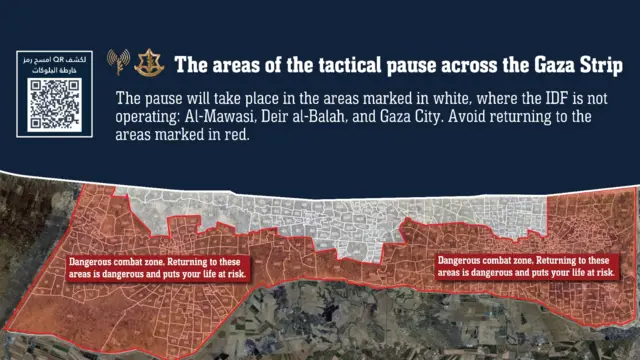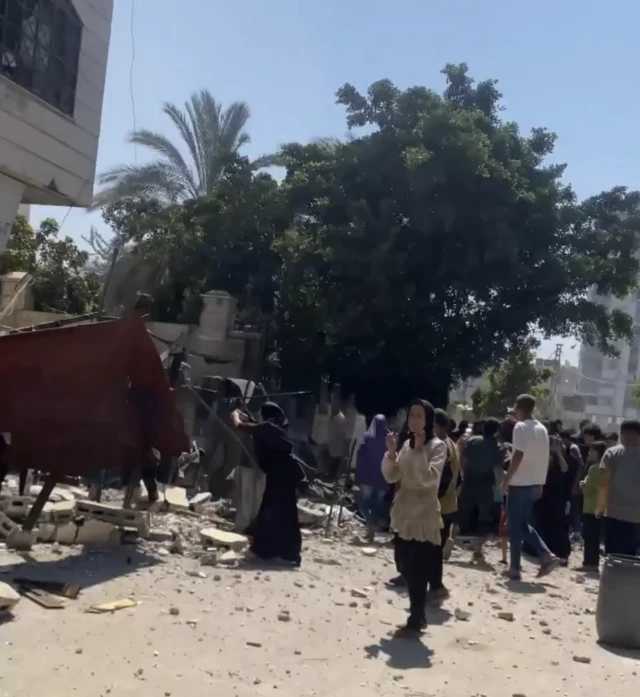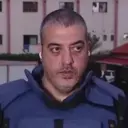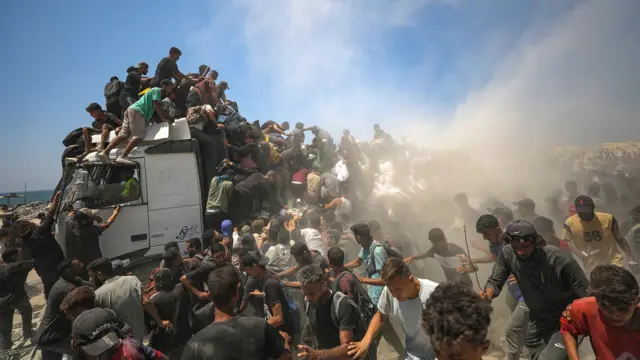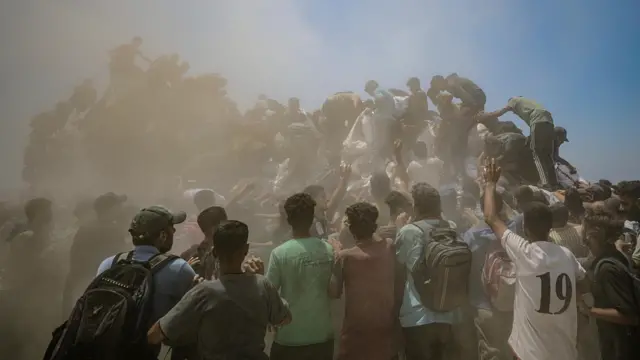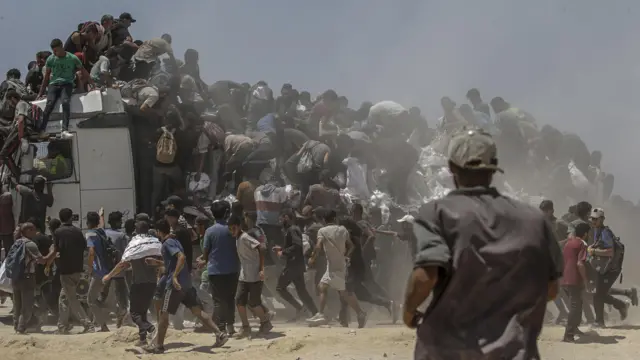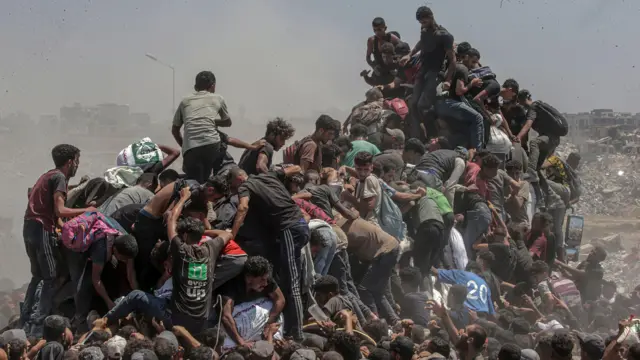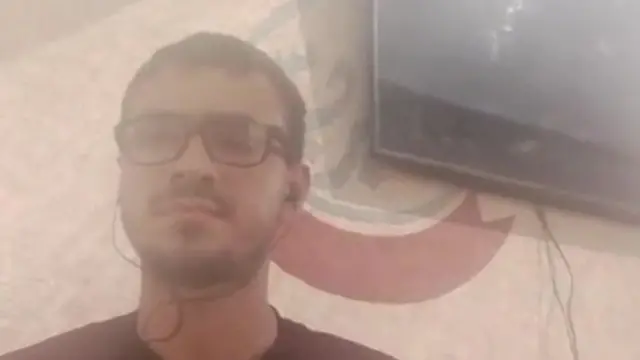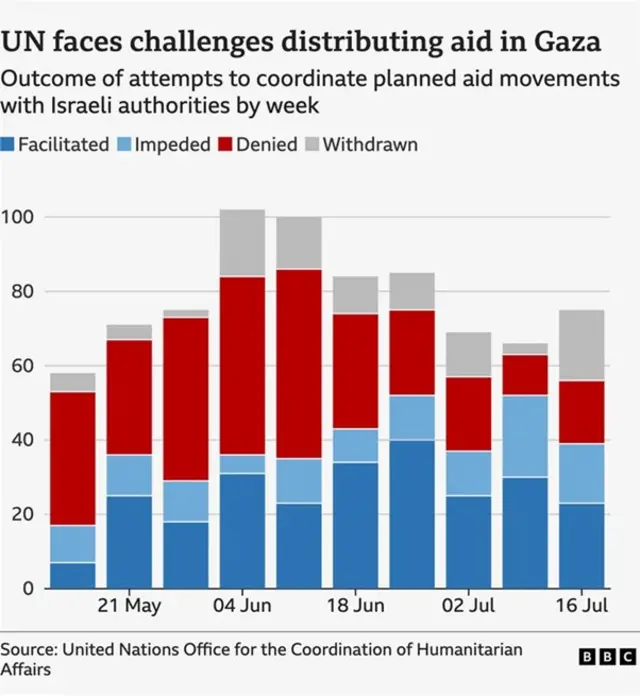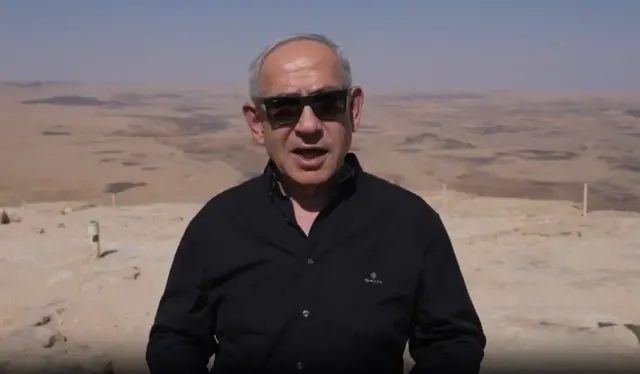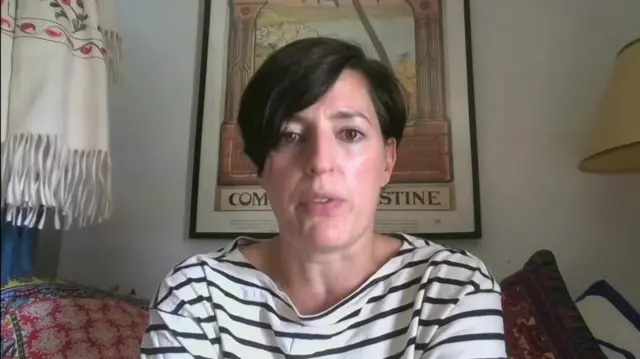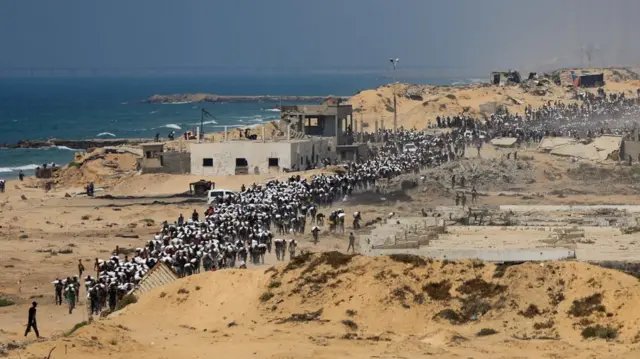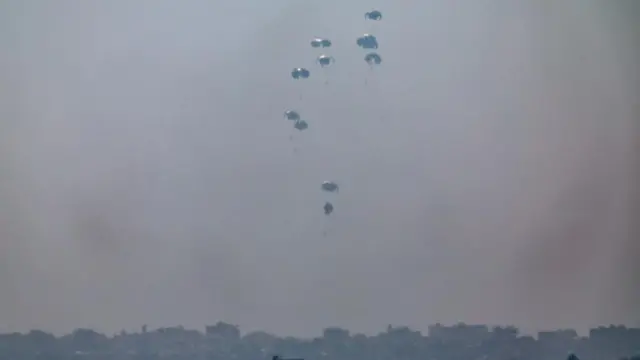Malnutrition in Gaza on dangerous trajectory, WHO warns as aid air drops resumepublished at 19:49 BST 27 July
 Thomas Mackintosh
Thomas Mackintosh
Live reporter
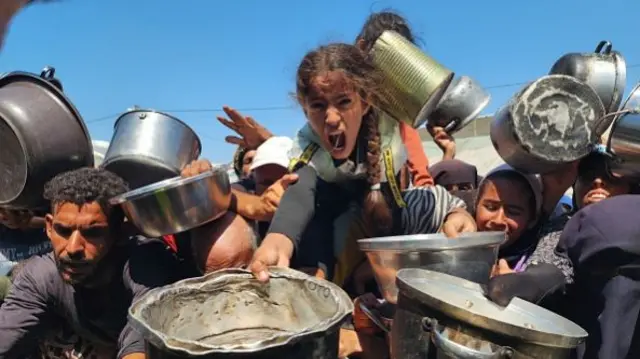 Image source, Getty Images
Image source, Getty ImagesThe World Health Organization has warned malnutrition has reached "alarming levels" in Gaza with rates on a "dangerous trajectory" after aid air drops resumed to the Strip.
Israel announced a series of new aid measures, after more than 100 international aid organisations and human rights groups warned of mass starvation in Gaza earlier this week.
Israel said on Sunday it would halt military operations for 10 hours a day in parts of Gaza and allow aid corridors, to "refute the false claim of intentional starvation".
Jordan, the UAE and Egypt said they delivered aid into Gaza by land and air - with Jordan and the UAE saying it delivered "25 tonnes of food aid and essential humanitarian supplies" by aid air drops.
People in Gaza have reacted and said, although the aid is welcome, it must be the beginning of a broader, lasting solution to the deepening crisis.
The Hamas-run Gaza health ministry has said at least 133 people have died from malnutrition since the war began.
Aid agencies have also reacted, with Médecins Sans Frontières saying the pause in fighting and aid drop is "not enough". The UN's World Food Programme said it welcomes Israel's pause in military action in some parts of Gaza, but there needs to be a "surge" in aid.
We are pausing our live coverage but you can stay across this story on BBC News.

